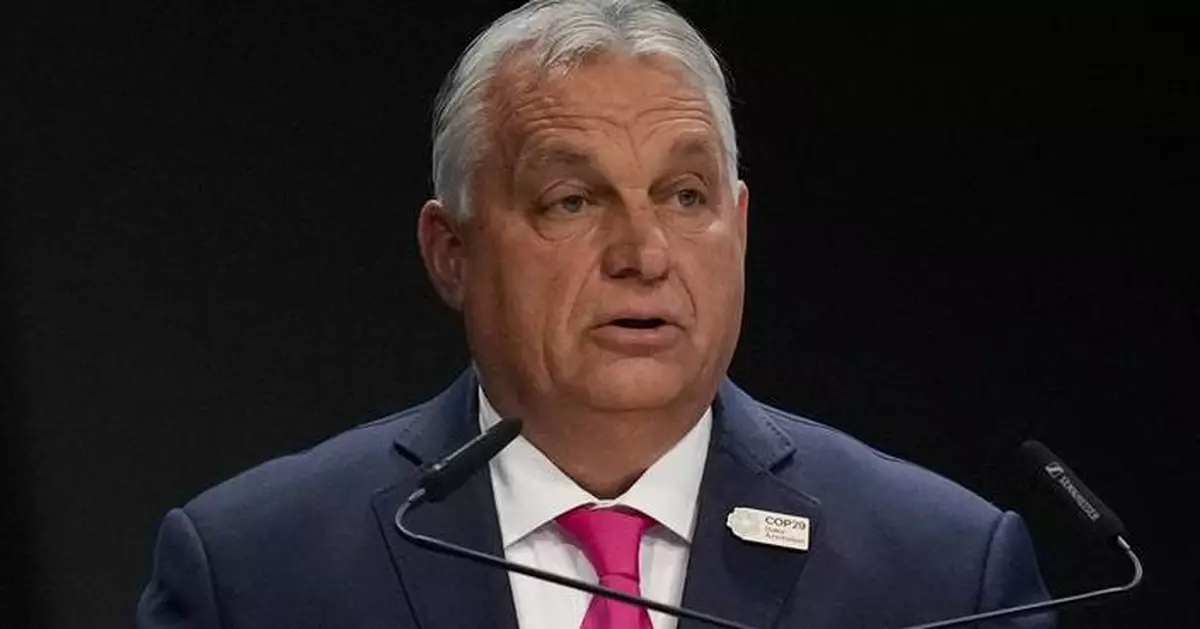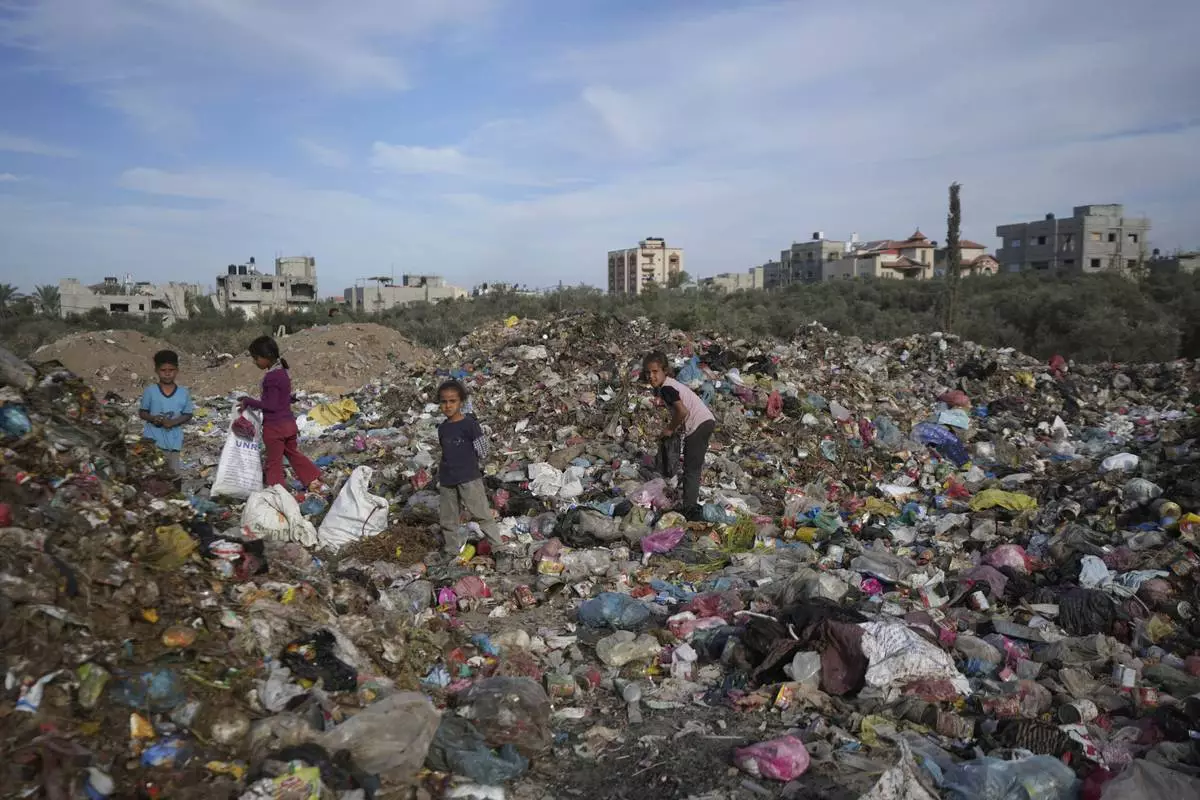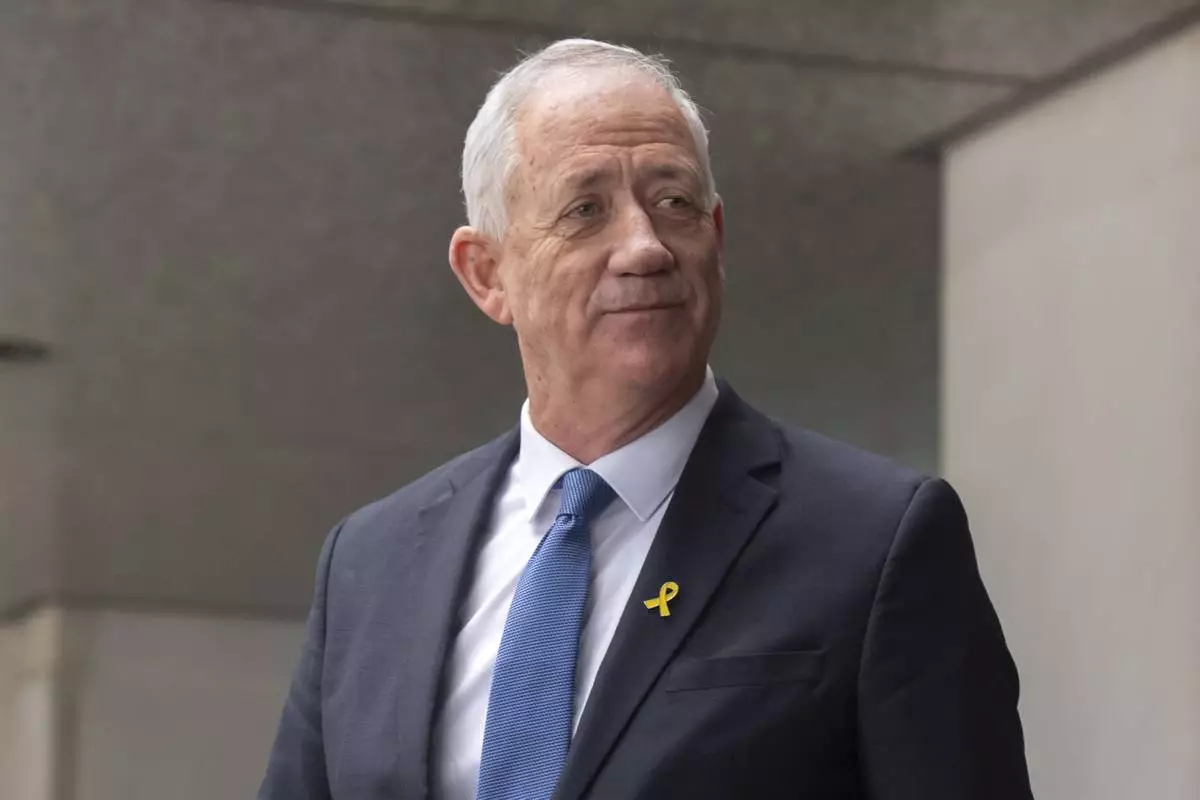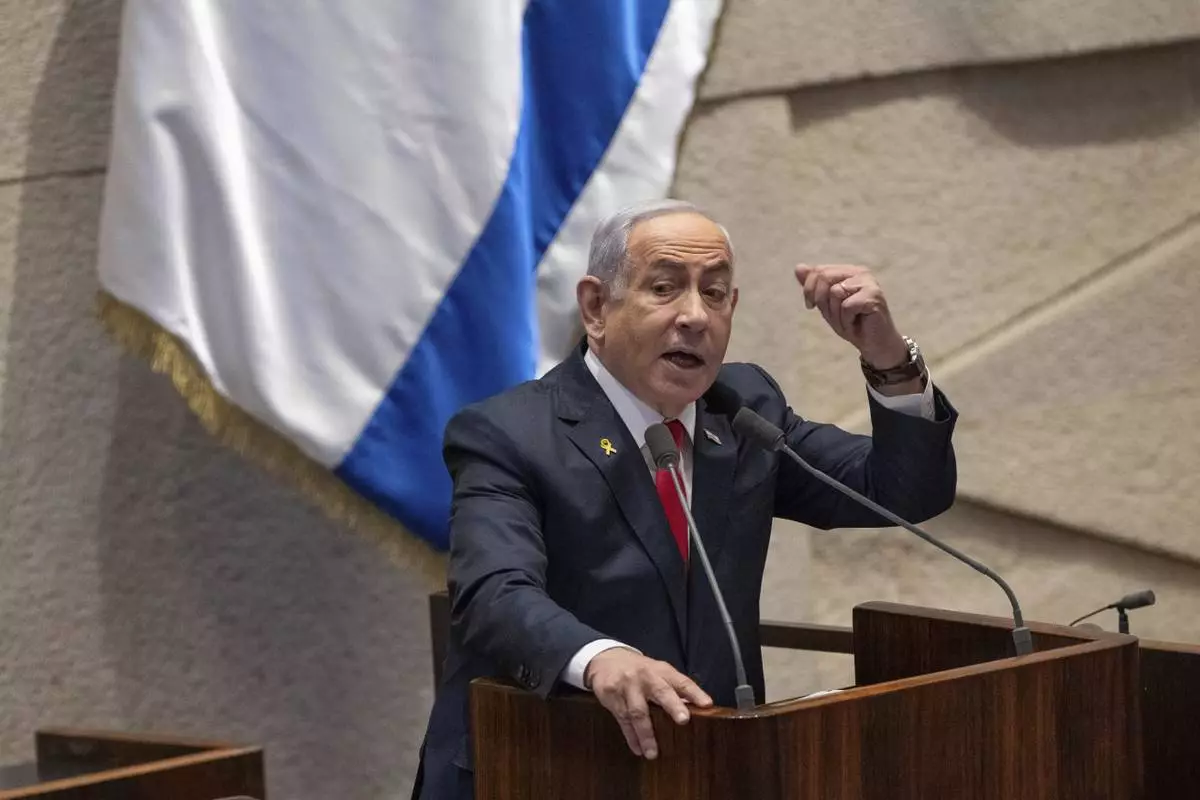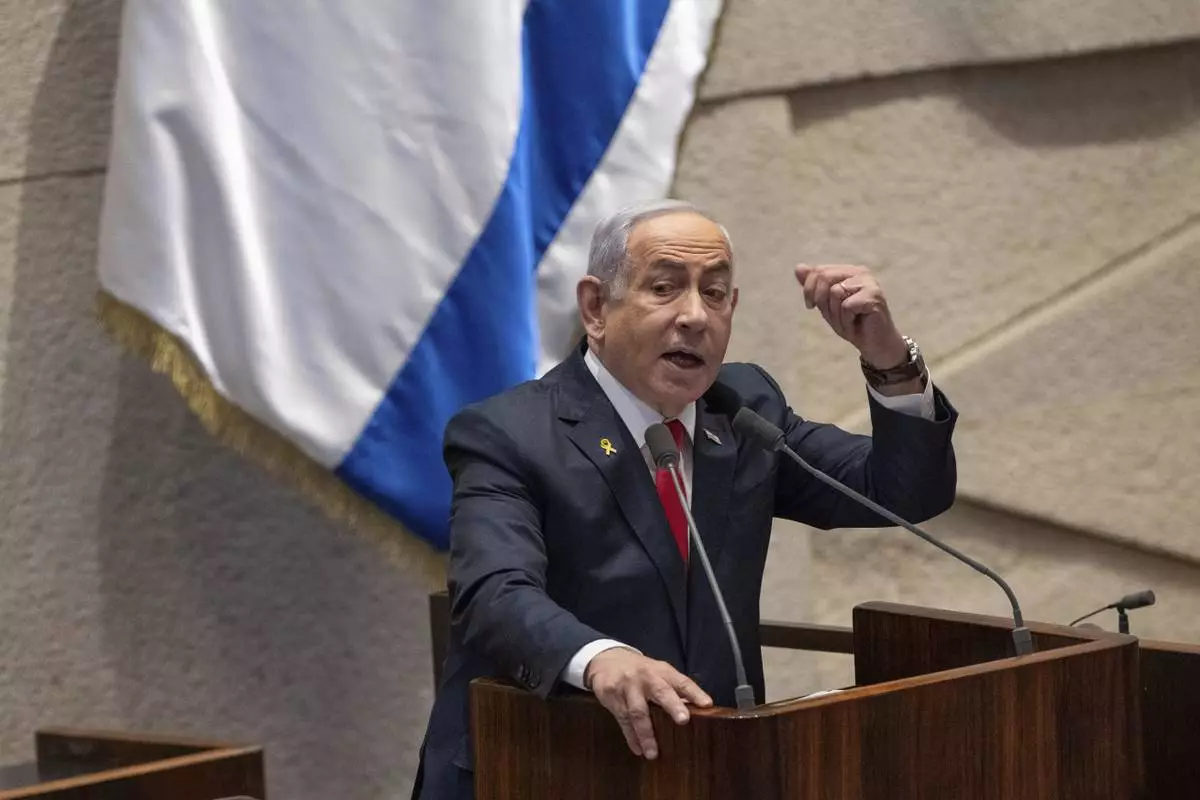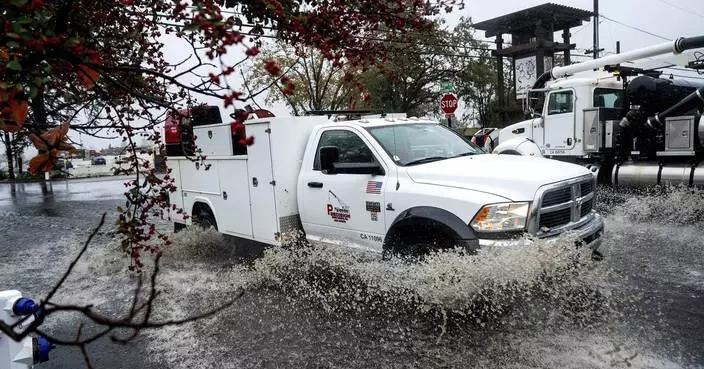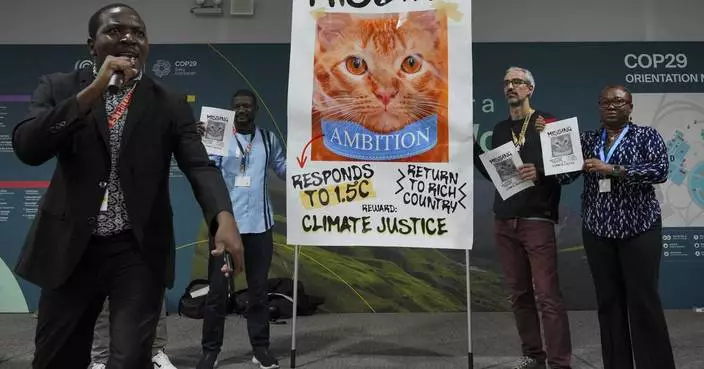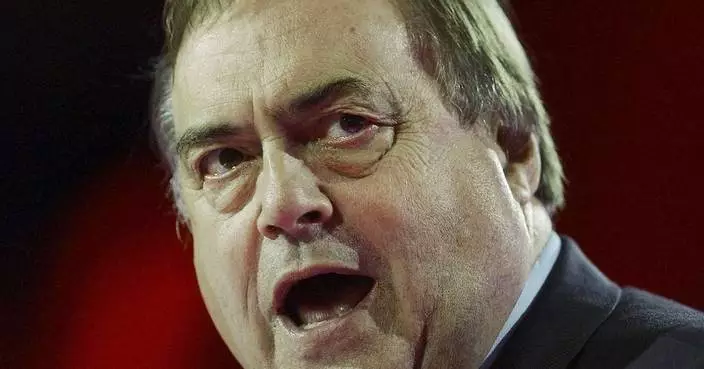BAKU, Azerbaijan (AP) — They’re political soulmates except when it comes to climate.
President-Elect Donald Trump praised Hungary’s right-wing populist leader Viktor Orbán as respected, smart and a “strong man” in his winning 2024 campaign. During Hungary’s rotation at the top of a council of European Union leaders, Orbán promised to “make Europe great again.”
But on climate they don’t see eye-to-eye. Trump has rejected the need for climate action, instead promising to drill for more planet-warming oil and gas. Meanwhile, Hungary has set a net-zero emissions goal. Other far-right governments, such as Italy and the Philippines, have said strong climate action is needed because it's a serious threat to their countries and the world. They also see it as an economic opportunity.
“We can balance ambition with pragmatism, establishing Europe as a global leader in climate action without compromising the prosperity of our industries and agriculture,” Orbán told attendees of ongoing United Nations climate negotiations.
European officials say they're just recognizing reality.
Hungary is pushing climate action “because we understand that that's the only way forward,” said Veronika Bagi, who leads negotiations both for Hungary and for the EU. “You see from people, it’s their priority. They are becoming more and more aware.”
In contrast, Trump in his first term pulled out of the historic 2015 Paris agreement that calls for nations to limit warming and has discussed doing so again. And Project 2025, written by conservatives in Trump's orbit, calls for the even more drastic move of pulling out of a 1992 treaty — negotiated by George H.W. Bush's administration and approved unanimously by the Senate — that sets up the underlying environmental program behind climate negotiations.
The U.S. is now the world's largest oil producer, so the country has a financial interest in fossil fuels.
Trump isn't alone. Argentina's right-wing President Javier Milei recently pulled his team out of climate negotiations in Baku and has considered withdrawing from the Paris agreement.
That’s a problem because limiting emissions requires international cooperation, said Dieter Plehwe, a climate politics expert at the Berlin Social Science Center.
“If country after country drops out, then of course Paris is dead," he said.
Look at oil and gas supplies, said former U.S. climate envoy Jonathan Pershing, now executive director of the environment program at the Hewlett Foundation (The Associated Press receives support for climate coverage from Hewlett).
“The primary difference” between European right-wing parties and those in the Americas “is what your resource supply looks like,” Pershing said, noting that Italy and Hungary have little oil or gas. “If I don't have the resources what do I care about? I care about energy security,” which can come from climate-friendly renewables, he said.
There's also a philosophical difference between Europe and America that cuts across ideologies, Pershing said. In Europe even the right wing views “that government is part of national policy,” he said, but in America “government is seen as an obstruction to individual freedoms.”
Francesco Corvaro, Italy’s special envoy for climate change, said young people care about reducing carbon emissions, setting expectations that the right-wing government will act.
And then there are efforts to create mistrust of climate action.
The origins of American climate doubt developed decades ago and was driven by a partnership between oil and gas interests and anti-regulation think tanks, according to Bob Ward, policy and communications director with the Grantham Research Institute at the London School of Economics.
In 1988, NASA climate scientist Jim Hansen told Congress that carbon dioxide was warming the planet, raising public awareness of global warming for the first time. A coalition of pro-business groups cast doubt on that science — a tactic that splintered public opinion.
“It became an identity issue that denying the science of climate change was a statement of your identity. And equally, accepting the science of climate change was a statement of your identity as a Democrat,” he said.
Industry efforts succeeded. In 2022 — more than three decades after Hansen raised the alarm — the Biden administration’s Inflation Reduction Act was the first major piece of U.S. climate change legislation.
In the U.S. “you can spend as much as you want on campaigns. You can lobby openly. You can purchase influence, basically, if you are a huge industry,” said Timmons Roberts, a politics of climate change expert at Brown University.
Mario Loyola, a senior research fellow with the Heritage Foundation focused on environmental policy and regulation, rejected blame aimed at the right.
“Even without the Heritage Foundations and the so-called right, when people realize what the costs of climate policies are, they reject them,” he said, pointing as an example to large French protests over rising fuel prices in 2018.
A recent United Nations poll found a majority of people support strong climate action, but Loyola said when costly solutions are implemented they become unpopular and countries are likely to abandon them.
That anti-regulation influence hasn't achieved similar dominance across Europe, experts said. Atilla Steiner, state secretary for energy and climate policy in Hungary and a top negotiator for the EU, said he doesn't see a conflict between reducing emissions and conservatism, which he says values protecting a country's resources.
“I think if you have a family – if you have children – then you care about their future,” he said, adding that means you care about the climate and environment.
It’s not that every right-wing party in Europe is a climate champion. There are far-right parties that oppose climate action, see it as unimportant, or reject the science. A right-wing party in the Netherlands, for example, campaigned on pulling out of the Paris agreement, though it backed away from that position after the election.
But at this point, outright denial or disengagement rarely drives government decision-making, Ward said.
And Europe's elections are shorter, less costly — and therefore less susceptible to money's influence — than those in the U.S., where climate-friendly Republicans can be vulnerable to primary election challenges from more conservative party rivals. The fossil fuel industry and its executives poured millions into Trump's campaign, and spends heavily on supportive politicians throughout government.
Fossil fuel interests do have influence in Europe, but there’s “certainly a difference in the strength of the opposition,” according to Plehwe of the Berlin Social Science Center. He said the structure of the European Union helps by coordinating policy across borders and funding the transition away from fossil fuels. In Poland, for example, EU funding helped coal-dependent regions shift to renewable energy, retrain workers and clean up polluted land.
Right-wing climate action extends beyond Europe. Philippines President Ferdinand Marcos Jr., son of the country’s former dictator, agreed to host leaders of a fund that would help places hit hardest by climate change.
The island nation is highly vulnerable to climate change and there's not the view that climate action stands in the way of economic success, according to Lidy Nacpil, a Filipino coordinator with the Asian Peoples' Movement on Debt and Development.
“The basic position that we need to be free of fossil fuels eventually and rapidly as we need to cuts across parties,” she said.
The Associated Press receives support from the Walton Family Foundation for coverage of water and environmental policy. The AP is solely responsible for all content. This story was produced as part of the COP29 Cross-Border Energy Transition Reporting Fellowship, a program organized by Clean Energy Wire and the Stanley Center for Peace and Security.
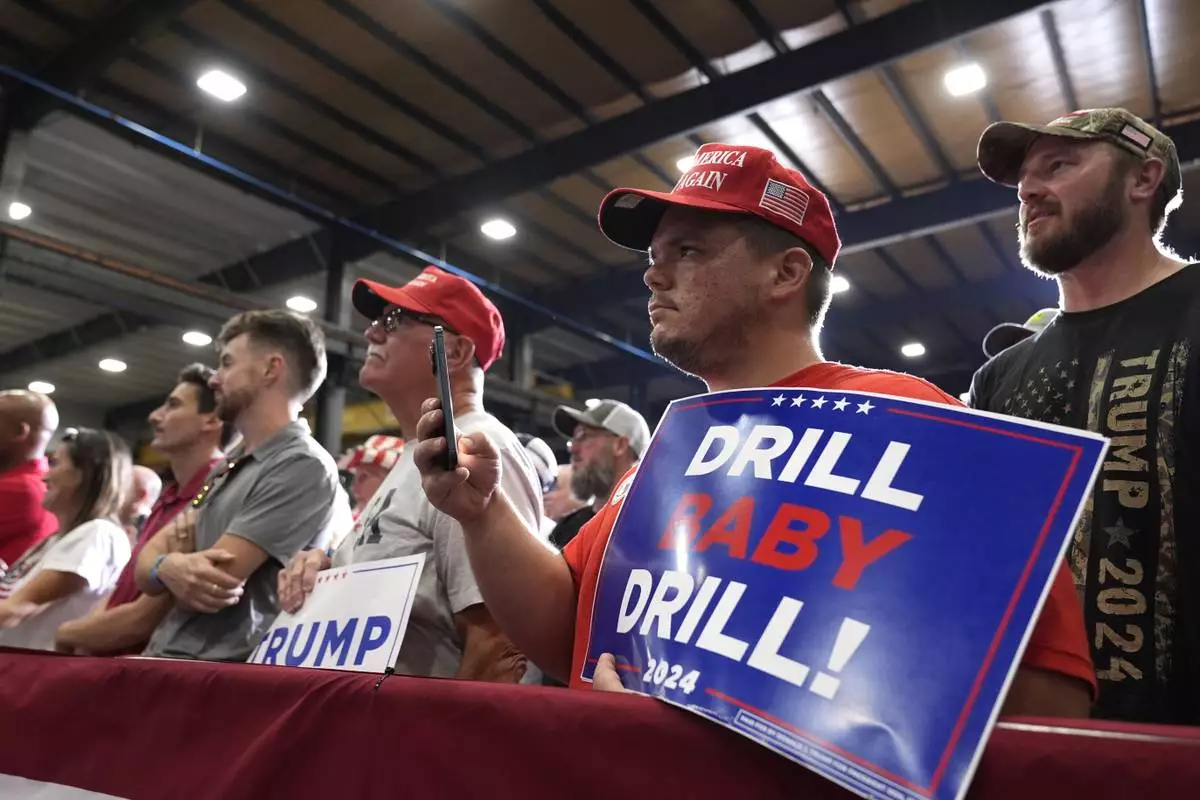
FILE - Attendees listen as Republican presidential nominee former President Donald Trump speaks during a campaign event at Alro Steel, Aug. 29, 2024, in Potterville, Mich. (AP Photo/Alex Brandon, File)
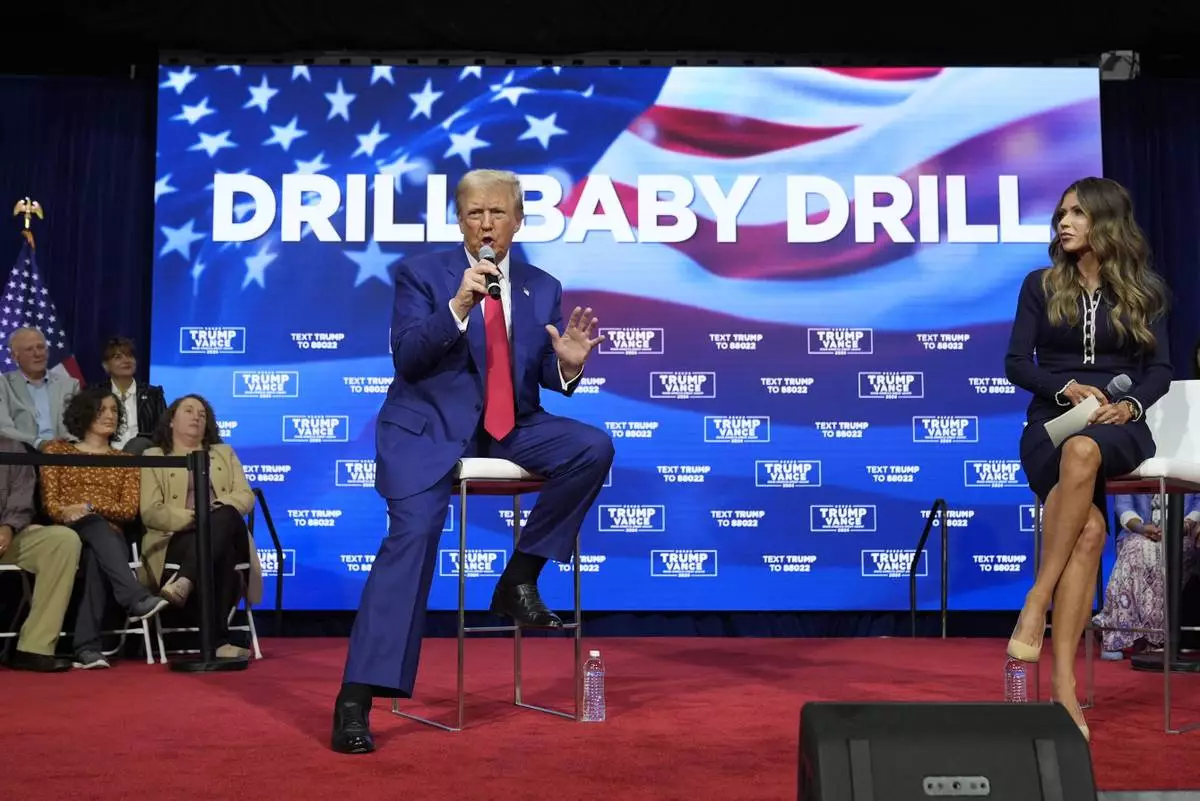
FILE - Republican presidential nominee former President Donald Trump speaks at a campaign town hall at the Greater Philadelphia Expo Center & Fairgrounds, Oct. 14, 2024, in Oaks, Pa., as moderator South Dakota Gov. Kristi Noem listens. (AP Photo/Alex Brandon)
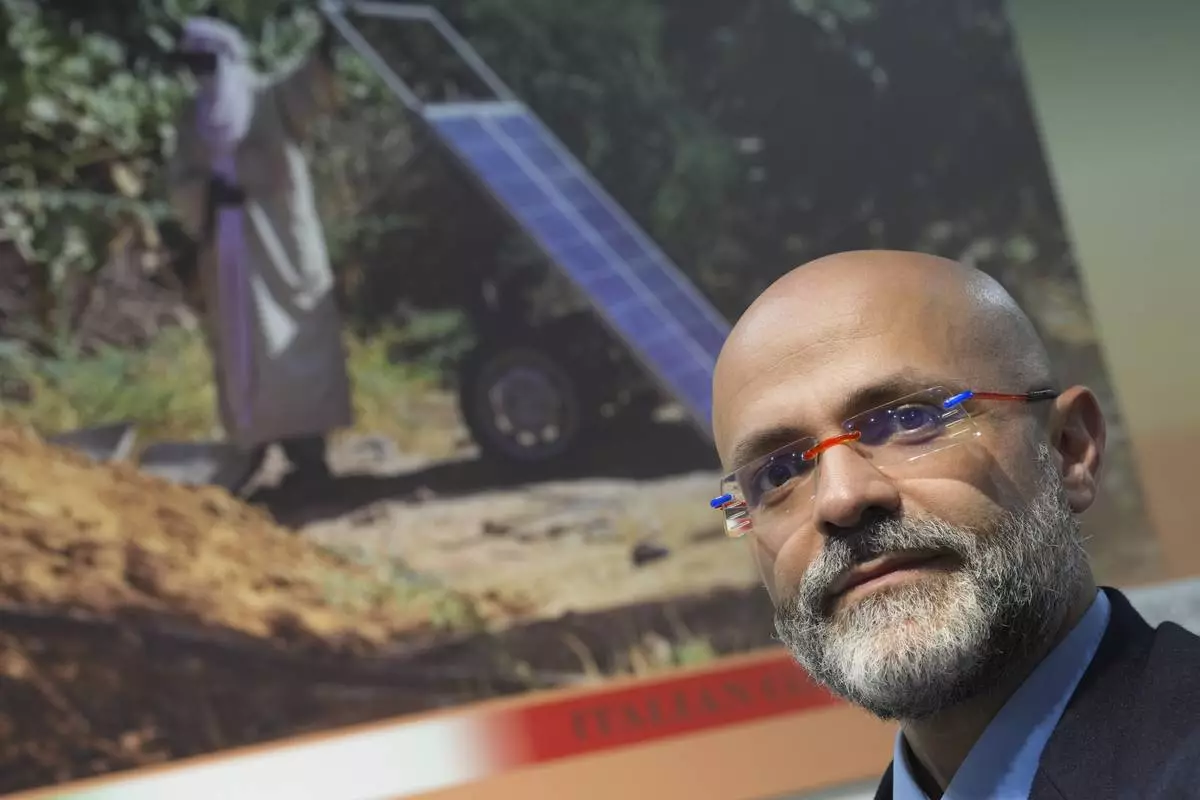
Francesco Corvaro, Italy special envoy for climate change, speaks with The Associated Press during the COP29 U.N. Climate Summit, Wednesday, Nov. 20, 2024, in Baku, Azerbaijan. (AP Photo/Peter Dejong)
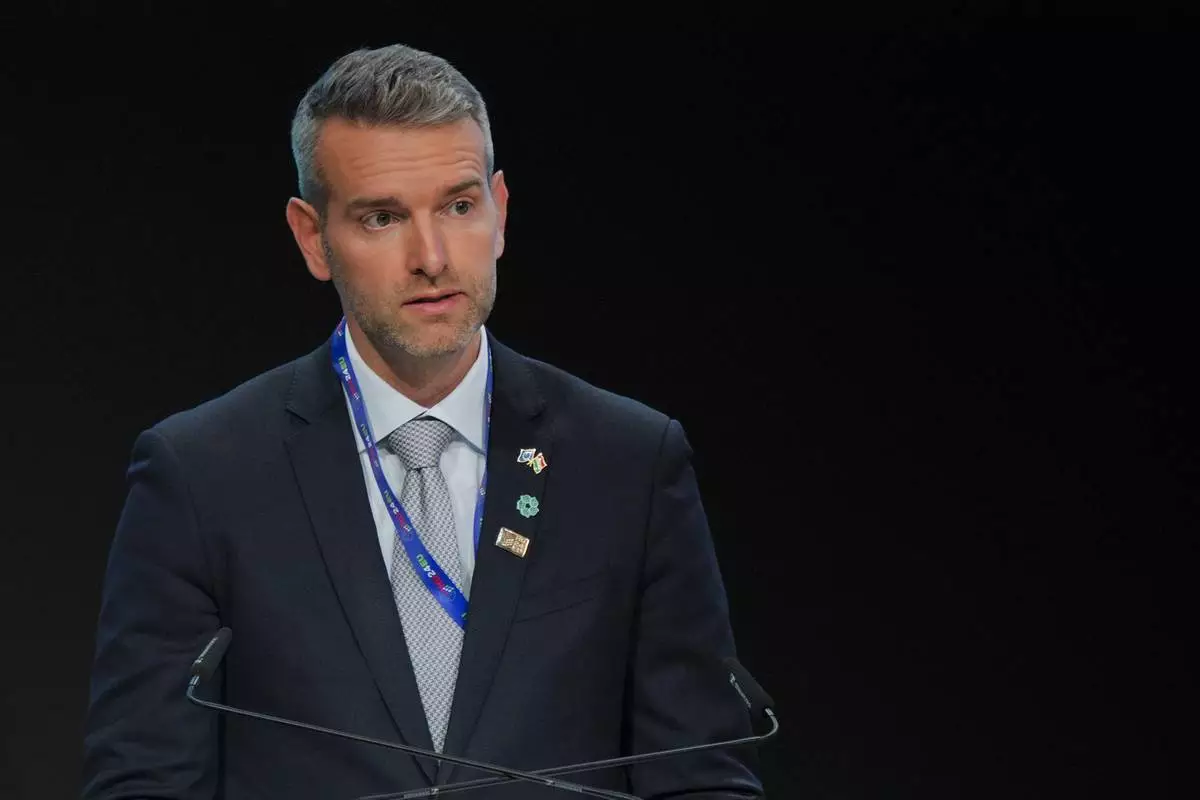
Attila Steiner, Hungarian presidency of the council of the EU, speaks during a plenary session at the COP29 U.N. Climate Summit, Tuesday, Nov. 19, 2024, in Baku, Azerbaijan. (AP Photo/Peter Dejong)
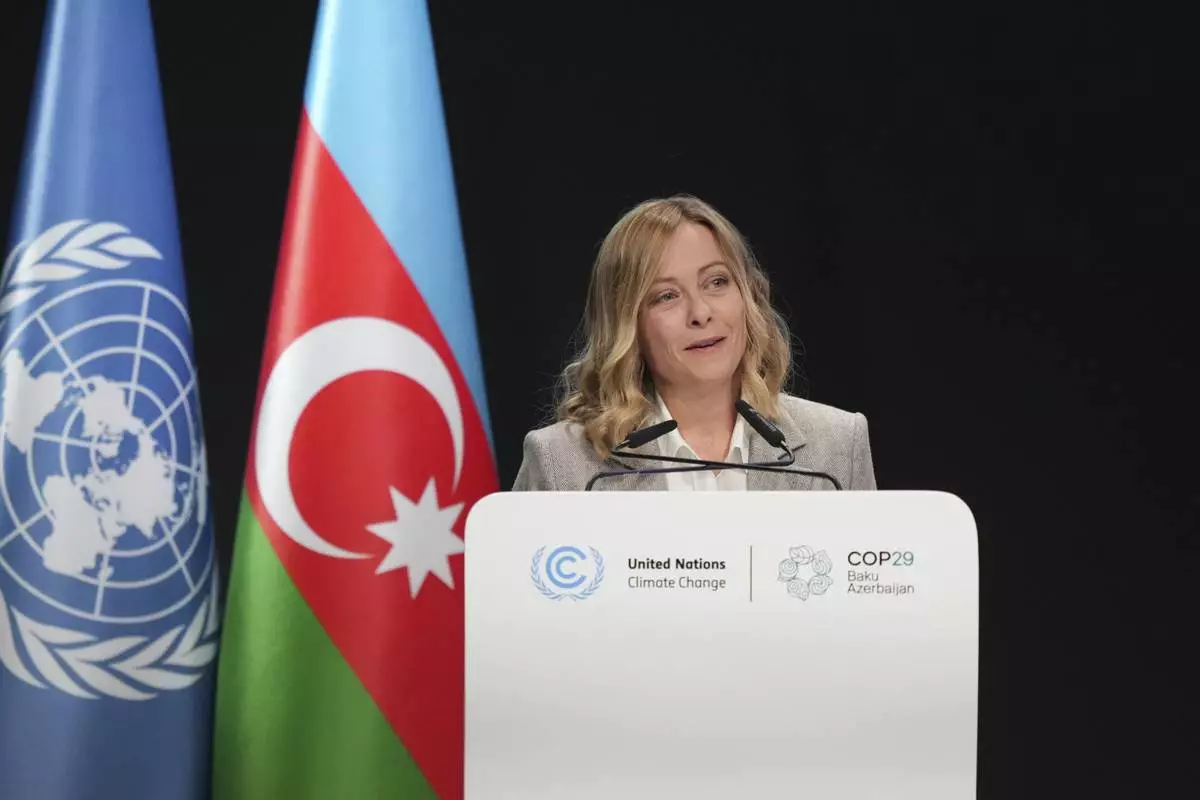
Italy Prime Minister Giorgia Meloni speaks during a plenary session at the COP29 U.N. Climate Summit, Wednesday, Nov. 13, 2024, in Baku, Azerbaijan. (AP Photo/Sergei Grits)
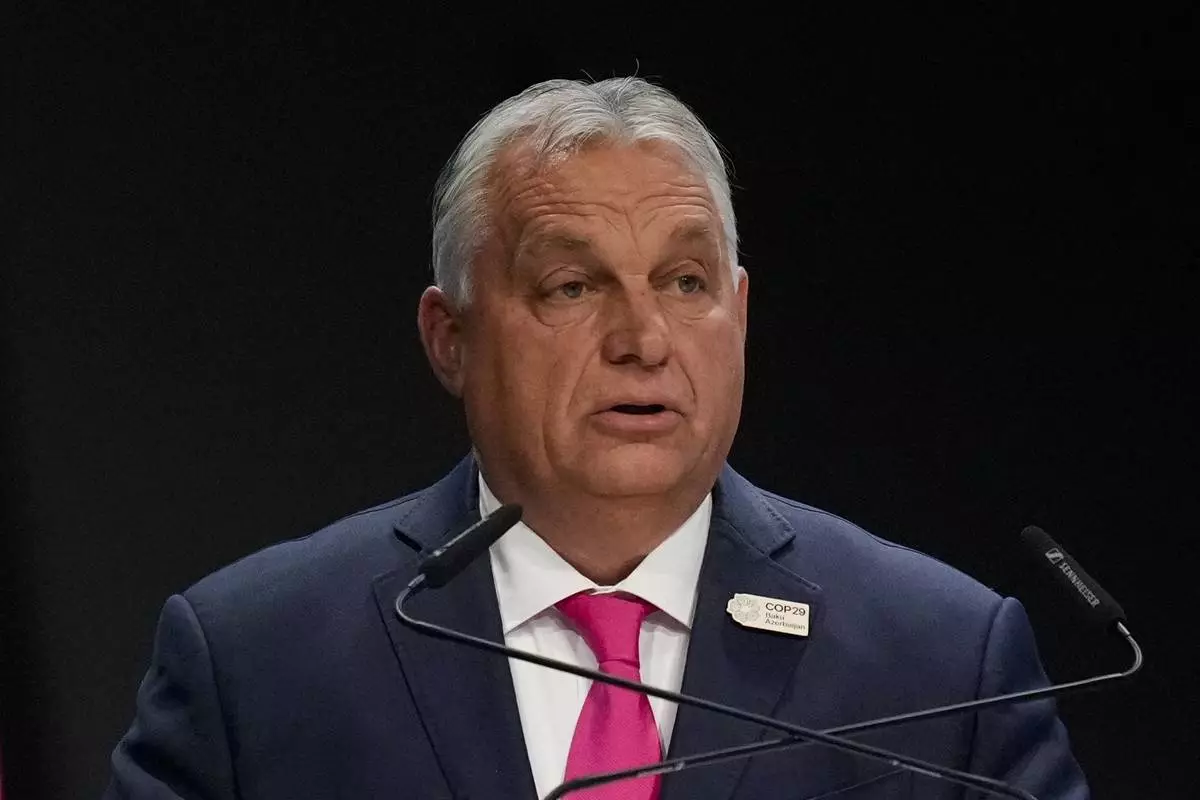
Hungary Prime Minister Viktor Orban speaks during a plenary session at the COP29 U.N. Climate Summit, Tuesday, Nov. 12, 2024, in Baku, Azerbaijan. (AP Photo/Rafiq Maqbool)


